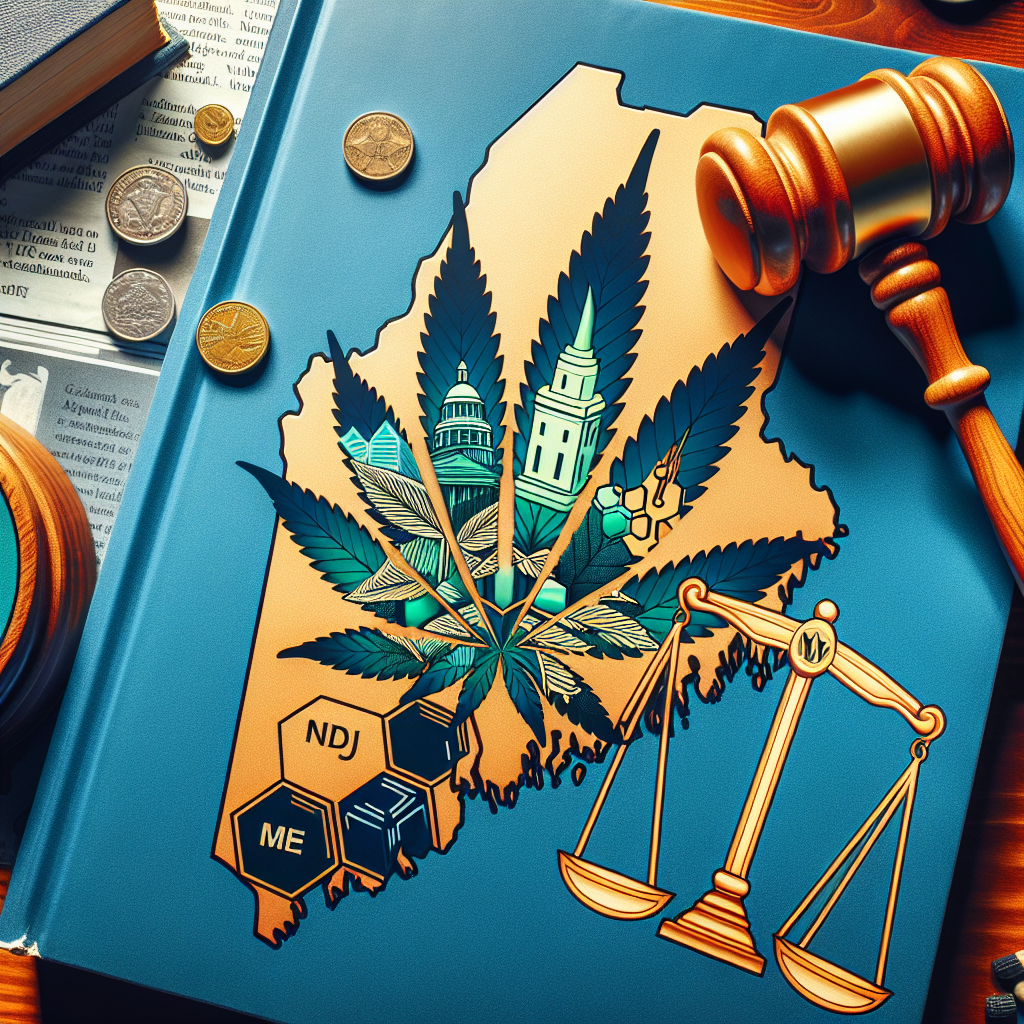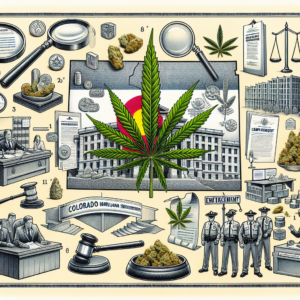Contents
Introduction to Delta-9 THC
Delta-9 Tetrahydrocannabinol (THC) stands as one of the most well-known cannabinoids found in the cannabis plant, renowned for its psychoactive properties. As attitudes toward cannabis continue to evolve globally, Delta-9 THC has garnered increasing attention for its potential medicinal benefits, recreational use, and economic significance within the burgeoning cannabis industry.
With its psychoactive effects, Delta-9 THC has been at the forefront of discussions surrounding cannabis legalization and regulation. Despite ongoing debates over its potential risks and benefits, Delta-9 THC remains a focal point for researchers, policymakers, and consumers alike.
As the legal landscape surrounding cannabis undergoes significant transformations, particularly in the United States, the distinction between Delta-9 THC and other cannabinoids becomes increasingly relevant. Notably, the emergence of Delta-8 THC, a cannabinoid with similar psychoactive properties to Delta-9 THC but derived from hemp, has sparked discussions around its legality and potential regulatory frameworks.
This introduction aims to provide a comprehensive overview of Delta-9 THC, its legal status, and recent developments within the context of Maine’s regulatory framework. By examining legislative actions, enforcement practices, industry perspectives, public perceptions, and potential future changes, this discussion seeks to elucidate the multifaceted landscape surrounding Delta-9 THC in Maine.
State-specific Legal Framework
Maine’s legal landscape regarding cannabis and cannabinoids reflects the state’s progressive approach to marijuana regulation. Since the legalization of recreational cannabis in 2016, Maine has established a framework that allows for the cultivation, sale, and consumption of cannabis products for both medical and adult-use purposes.
Within this framework, Delta-9 THC is classified as a Schedule X controlled substance under Maine law, subject to regulations governing its production, distribution, and consumption. The state’s definition of cannabis products encompasses various forms of Delta-9 THC, including flower, concentrates, edibles, and tinctures, thereby integrating Delta-9 THC into existing regulatory structures.
However, as the landscape of cannabinoid derivatives evolves, questions arise regarding the applicability of existing laws to emerging products such as Delta-8 THC. Distinctions between Delta-9 THC derived from marijuana and Delta-8 THC derived from hemp present challenges for regulators seeking to maintain compliance and ensure consumer safety.
This section will delve into Maine’s current laws and regulations regarding cannabis and cannabinoids, examining how Delta-9 THC fits within the state’s legal framework and exploring any nuances or ambiguities in the interpretation and enforcement of these regulations.
Recent Legislative Developments
Over the past several years, Maine has experienced a dynamic legislative landscape concerning cannabis regulation, including recent developments specifically pertaining to Delta-9 THC. Legislative actions and regulatory changes have shaped the legal framework governing the production, sale, and consumption of Delta-9 THC products within the state.
One significant development involves the refinement and clarification of regulations surrounding the production and distribution of Delta-9 THC products. Maine legislators have introduced measures aimed at addressing issues such as potency limits, product labeling requirements, and quality control standards to ensure consumer safety and regulatory compliance.
Furthermore, Maine’s evolving stance on cannabis legalization and regulation has influenced the treatment of Delta-9 THC within the state’s legal system. Recent legislative initiatives have sought to reconcile conflicting state and federal laws regarding cannabis, providing clarity for businesses, consumers, and regulatory agencies.
This section will provide an overview of recent legislative actions and regulatory changes related to Delta-9 THC in Maine, analyzing their implications for the legality and accessibility of Delta-9 THC products within the state’s evolving regulatory landscape.
Enforcement and Compliance
Enforcement of Delta-9 THC laws in Maine involves a multifaceted approach, with various agencies responsible for interpreting and implementing regulations pertaining to cannabis and cannabinoid products. The Maine Office of Marijuana Policy (OMP) plays a central role in overseeing the licensing, compliance, and enforcement aspects of the state’s cannabis industry.
Agencies such as the Maine State Police and local law enforcement departments collaborate with the OMP to monitor compliance with Delta-9 THC regulations, conducting inspections, investigations, and enforcement actions as needed. Additionally, the Maine Department of Health and Human Services (DHHS) oversees aspects of the medical cannabis program, ensuring compliance with patient access and safety standards.
Penalties for non-compliance with Delta-9 THC regulations in Maine vary depending on the nature and severity of the violation. Enforcement agencies may issue warnings, fines, license suspensions, or criminal charges for offenses such as illegal cultivation, distribution, or sale of Delta-9 THC products.
This section will explore how enforcement agencies interpret and enforce Delta-9 THC laws in Maine, discussing potential penalties for non-compliance and the role of regulatory agencies in ensuring compliance with state regulations.
Consumer Access and Availability
The availability of Delta-9 THC products in Maine is influenced by the state’s regulatory framework governing the production, sale, and distribution of cannabis and cannabinoid products. Licensed cannabis dispensaries serve as primary access points for consumers seeking Delta-9 THC products for both medical and adult-use purposes.
Maine’s adult-use cannabis market, established in 2020, allows for the sale of Delta-9 THC products to individuals aged 21 and older through licensed retail establishments. These dispensaries offer a variety of Delta-9 THC products, including flower, edibles, concentrates, and topicals, providing consumers with a range of options to suit their preferences and needs.
However, certain restrictions may apply to the sale and purchase of Delta-9 THC products in Maine, such as quantity limits, packaging requirements, and potency regulations. Consumers are encouraged to familiarize themselves with state laws and regulations to ensure compliance when purchasing and using Delta-9 THC products.
This section will assess the availability of Delta-9 THC products in Maine, exploring where consumers can legally purchase these products and any restrictions or limitations on sales and consumption.
Industry Perspectives
Industry stakeholders, including Delta-9 THC producers, retailers, and advocacy groups, play a crucial role in shaping the legal landscape surrounding Delta-9 THC in Maine. Their perspectives, insights, and experiences provide valuable insights into the challenges and opportunities within the cannabis industry.
Delta-9 THC producers and retailers navigate complex regulatory requirements while striving to meet consumer demand for high-quality products. They may face challenges such as compliance costs, supply chain logistics, and competition within the market. Additionally, advocacy groups advocate for policies that promote equitable access, social justice, and responsible cannabis use.
Industry trends and challenges related to Delta-9 THC regulation in Maine are influenced by factors such as market dynamics, consumer preferences, and evolving regulatory frameworks. Stakeholders’ perspectives offer valuable insights into emerging trends, regulatory developments, and opportunities for innovation within the cannabis industry.
This section will provide insights from industry stakeholders on the legal landscape surrounding Delta-9 THC in Maine, discussing industry trends, challenges, and perspectives on regulatory issues.
Public Perception and Awareness
Public opinion regarding Delta-9 THC in Maine reflects a diverse range of perspectives shaped by cultural, social, and political factors. While attitudes toward cannabis and cannabinoids have evolved in recent years, varying levels of acceptance and skepticism persist among different segments of the population.
Media coverage and public discourse surrounding the legality and use of Delta-9 THC contribute to shaping public perception and awareness. Coverage of legislative developments, scientific research, and public health initiatives can influence public opinion on Delta-9 THC’s risks, benefits, and regulatory implications.
Furthermore, community outreach efforts, educational campaigns, and advocacy initiatives play a vital role in raising awareness about Delta-9 THC and its legal status in Maine. These efforts aim to provide accurate information, dispel misconceptions, and promote responsible cannabis use.
This section will analyze public opinion regarding Delta-9 THC in Maine, examining media coverage, public discourse, and awareness campaigns surrounding the legality and use of Delta-9 THC within the state.
Potential Future Changes
Speculating on potential future changes to Delta-9 THC laws and regulations in Maine involves considering a range of factors that may influence legislative or regulatory decisions. These factors include evolving public attitudes, scientific research findings, industry trends, and political developments.
Changes in federal law or policy regarding cannabis could have significant implications for Maine’s regulatory framework, influencing decisions related to Delta-9 THC legalization, taxation, and licensing. Additionally, shifts in public opinion, driven by factors such as educational campaigns or demographic changes, may lead to revisions of existing laws or the introduction of new regulations.
Industry stakeholders, advocacy groups, and policymakers play essential roles in shaping the direction of Delta-9 THC regulation in Maine through advocacy efforts, lobbying, and participation in the legislative process. Collaboration among these stakeholders can facilitate informed decision-making and consensus-building on key regulatory issues.
This section will consider potential future changes to Delta-9 THC laws and regulations in Maine, taking into account various factors that may influence legislative or regulatory decisions in the coming years.
Legal Considerations for Consumers
For consumers navigating the legal landscape of Delta-9 THC in Maine, understanding key considerations and compliance measures is essential to ensure lawful purchase and use of cannabis products. Familiarity with state laws, regulations, and licensing requirements can help consumers make informed decisions and avoid potential legal pitfalls.
When purchasing Delta-9 THC products, consumers should verify the legitimacy of dispensaries and retailers by checking for valid licenses and adherence to regulatory guidelines. Additionally, consumers should be aware of product labeling requirements, potency limits, and dosage recommendations to ensure safe and responsible use.
Consumers should also stay informed about changes in Delta-9 THC laws and regulations, as legislative developments may impact product availability, pricing, and accessibility. Seeking guidance from healthcare professionals or legal experts can provide valuable insights and assistance in navigating the legal complexities of Delta-9 THC consumption.
This section will provide guidance for consumers on understanding and navigating the legal landscape of Delta-9 THC in Maine, offering tips for ensuring compliance with state laws and regulations when purchasing and using Delta-9 THC products.
Conclusion
In conclusion, the legal landscape surrounding Delta-9 THC in Maine is dynamic and multifaceted, reflecting evolving attitudes, regulatory frameworks, and industry developments within the cannabis sector. Despite the challenges and complexities inherent in regulating psychoactive substances, Maine has established a comprehensive framework that allows for the production, sale, and consumption of Delta-9 THC products for both medical and adult-use purposes.
Recent legislative developments, enforcement practices, industry perspectives, and public perceptions collectively shape the current status and future outlook for Delta-9 THC regulation in Maine. While challenges remain in reconciling conflicting state and federal laws, ongoing efforts by policymakers, industry stakeholders, and advocacy groups aim to promote responsible cannabis use, ensure consumer safety, and support the growth of Maine’s cannabis industry.
As Maine continues to navigate the evolving landscape of cannabis regulation, consumers are encouraged to stay informed, exercise caution, and adhere to state laws and regulations when purchasing and using Delta-9 THC products. By fostering collaboration, transparency, and compliance, Maine can continue to serve as a model for responsible cannabis regulation while addressing the needs and preferences of its residents.


